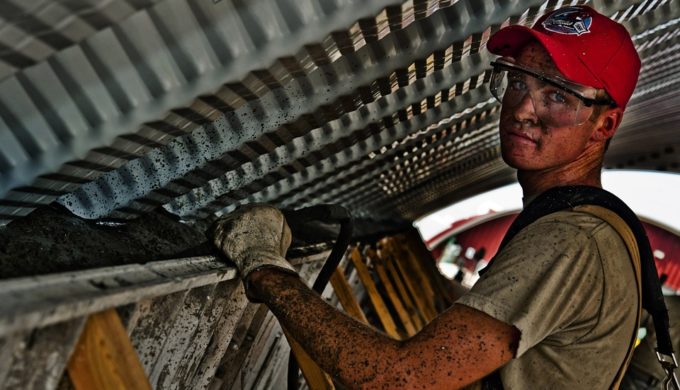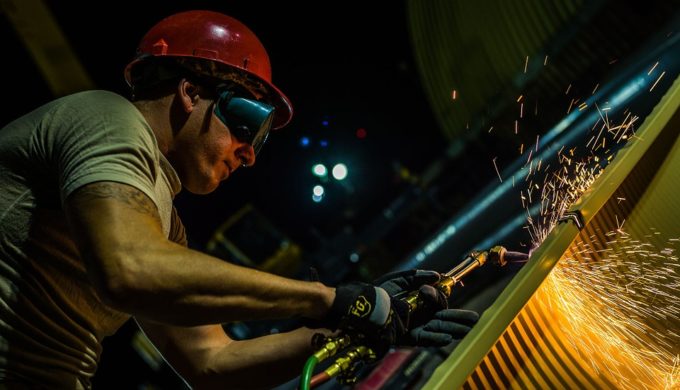The skilled labor shortage in Texas (parts of North Texas, and especially in Houston) has been looming over the construction industry in the Lone Star State for some time now. Experts began warning of the pending problem at a time when it was apparent that an oil downturn was on the horizon – something that normally echoes direction in construction and development industries. However, community colleges are trying to bring their A-game when it comes to training young people (and retraining those that have recently left the workplace for new employment) with respect to skilled trades, and those that graduate are well on their way to making anywhere between $15 and $30 per hour to start.
Lifestyle
A Grassroots Response to the Texas Skilled Labor Shortage

Photo: Pixabay
Houston Community College (HCC) is one of those schools, where registered students can take welding, pipefitting, plumbing, air conditioning technology, electrical, and computer-aided design programs. Many such courses are also taught in Spanish in order to include and engage immigrants, who are presently a large part of America’s construction workforce. In a press report published in April of this year, Tom Tynana, director of HCC’s construction trade program, noted, “We’re their last chance. Some of them don’t have high school diplomas. They just have nowhere to go and when they come here, they have an opportunity.” And with the construction industry in Texas in desperate need of skilled workers, this results in a perfect match.

Photo: Pixabay
One of the reasons the industry is facing such labor woes is the outside perception by youth and some more mature catchments that construction jobs are “blue collar,” and consist of dirty and hard work. Peter Beard, who oversees the UpSkill Houston program through Greater Houston Partnership, explained, “There’s no arguing that being a welder is dirty and sweaty. But they are also great opportunities for great careers.” Launched in 2014, UpSkill Houston’s mission is to connect workers, education, and industry in order to fill the skilled labor shortage in Texas. They do this for not only the construction industry, but the petrochemical and healthcare industries as well. And, it’s working.

Photo: Pixabay
In March 2017, the Texas Masonry Council (TMC) invited representatives from government, education, and industry to the table to talk next steps in addressing their labor shortage. TMC President, Ben Wheaton, had this to say about the current situation: “We have just experienced over the last 30 something odd years a steady decline in not just available labor but skilled labor. We have increased our wages substantially over the last five years and it’s just not enough to keep up with the demand.” In response to the matter, he felt that construction trades should be taught in school districts as well as community and technical colleges, saying, “Getting students at ages 16, 17, 18 interested in going into the construction industry and understanding that this is a viable trade and a trade that can pay the bills and pay them well, too.”

Photo: Pixabay
Also, it appears that the Houston Independent School District (HISD) was listening to Wheaton’s comments. HISD’s career and technical education program representative, Elnora Talbert, noted that students who are required to choose a career path as early as the eighth grade has helped in this instance. As an example, within Barbara Jordan High School, students are given all of the skills and resources for professions that presently require less than four years in college. If they choose a technical career, they can earn certifications towards it while they’re still attending high school.

Photo: Pixabay
In terms of legislation, Senate Bill 154 is under consideration in Austin, which would create a pilot program that would include workforce development specialists (i.e. guidance counselors) in schools, and may, therefore, bring technical trades back to the forefront in the state’s secondary and post-secondary education levels. The Texas Workforce Commissioner, Julian Alvarex, has identified that having someone who understands industry needs and has a great relationship with industry partners can complement independent school boards in their course curriculum as well as students in their career choices. What is the end result of such mechanisms? The hope is that Texas will have more skilled workers earning a better living from their newly earned skills.
Source:



